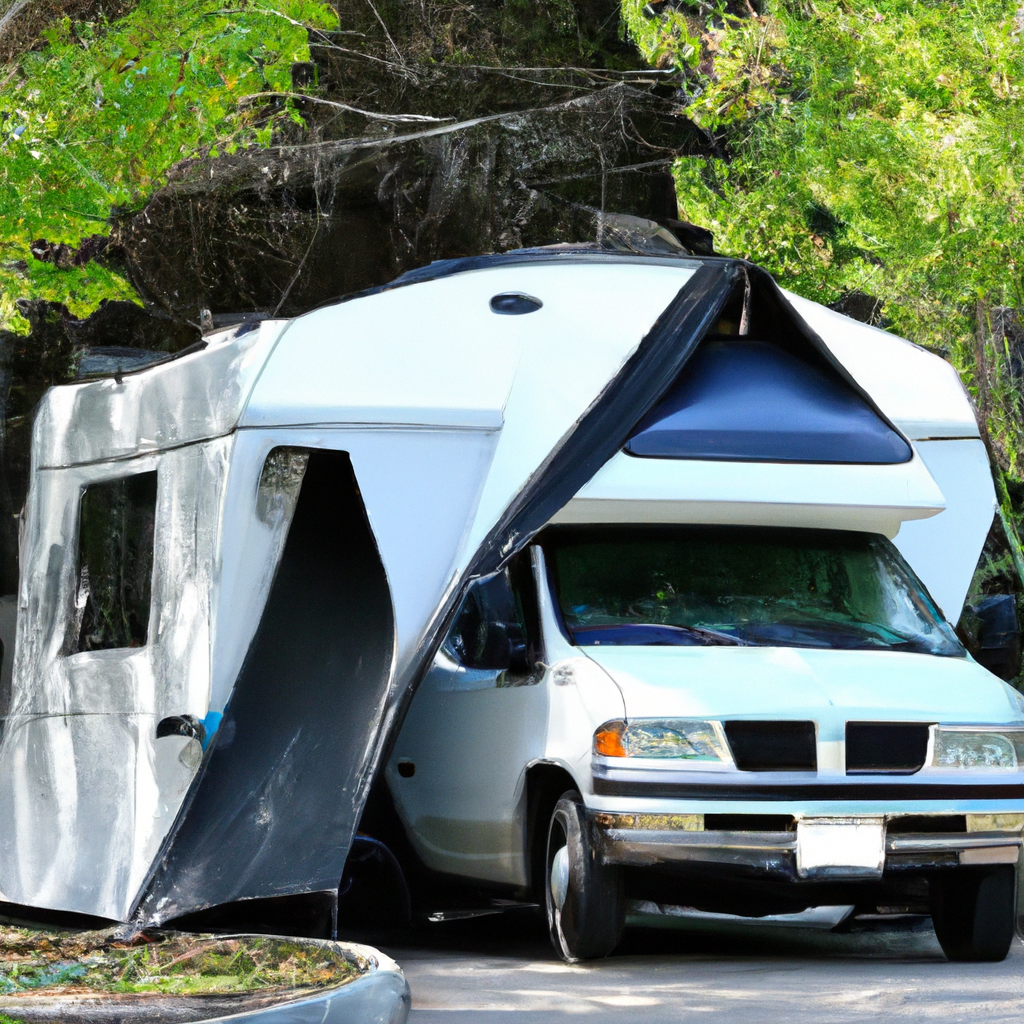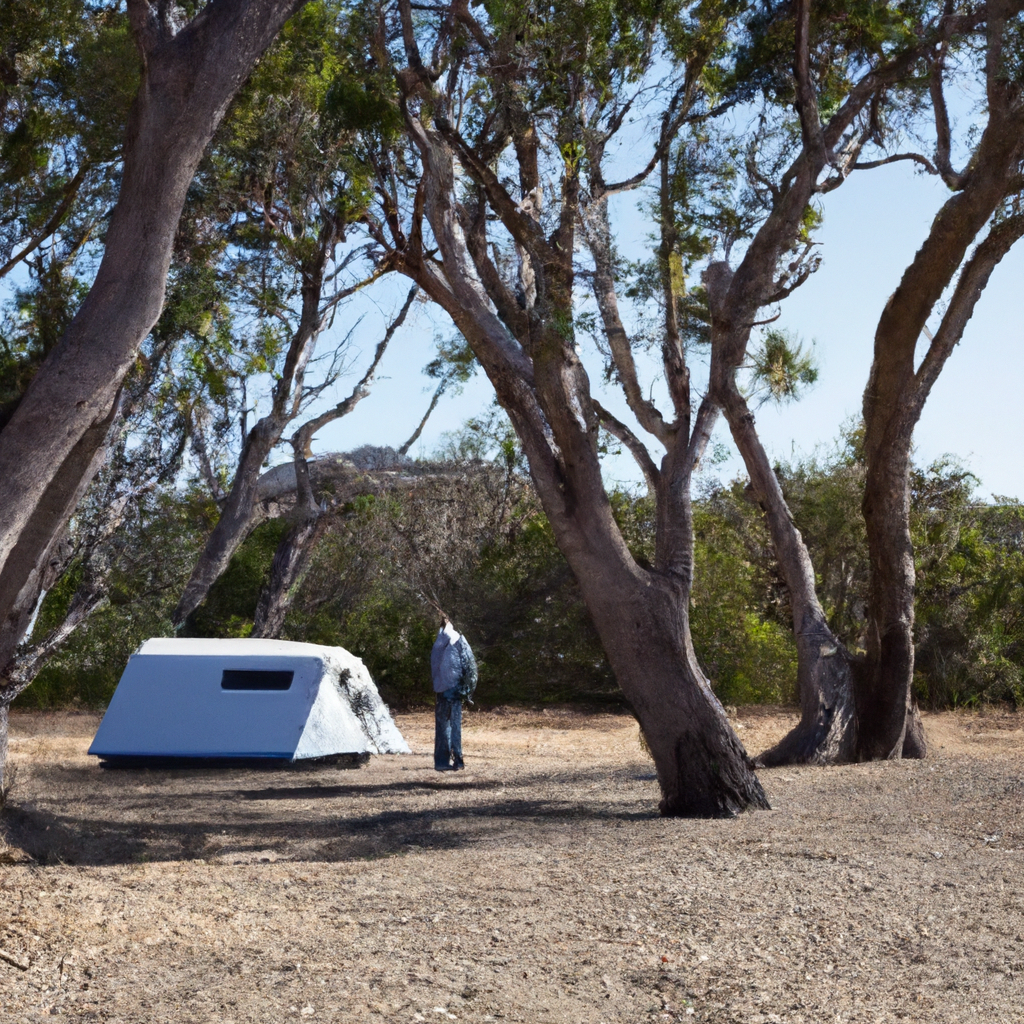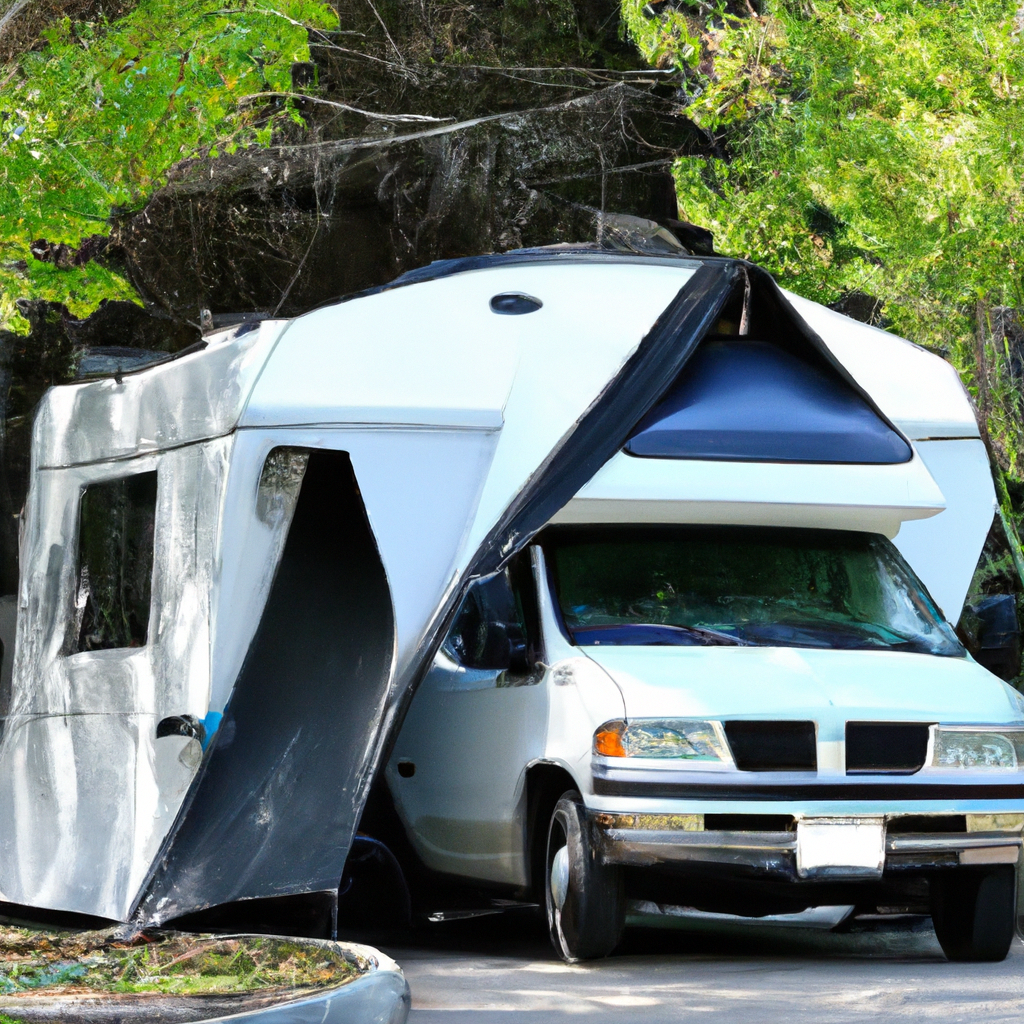When you’re planning a camping trip, the last thing you want is to be disturbed by excessive noise. But what exactly are the rules about noise levels at campgrounds? Whether you’re a nature lover seeking peace and tranquility or a social camper who enjoys lively gatherings, it’s important to know what is considered acceptable when it comes to noise. In this article, we’ll explore the different regulations and guidelines that campgrounds may have in place to ensure a harmonious camping experience for all. So, let’s dive into the world of noise regulations at campgrounds and find out what you need to know before you start packing those marshmallows and tents!

Regulations on Noise Levels
When you head out on a camping trip, you expect to enjoy the peace and tranquility of nature. However, it is important to note that there are regulations in place to ensure everyone’s enjoyment and comfort during their camping experience. Noise regulations play a crucial role in maintaining a peaceful atmosphere, and understanding and following these rules is essential. In this comprehensive article, we will explore the various local noise regulations, quiet hours, specific campground rules, consequences for noise violations, noise control solutions, tips for resolving noise complaints, and researching campgrounds with noise policies. So, let’s dive in and learn more about these regulations on noise levels.
Local Noise Regulations
Municipal and County Regulations
Noise regulations at campgrounds are typically governed by both municipal and county laws. Each municipality and county may have specific rules and guidelines regarding noise levels in public spaces, including campgrounds. Some jurisdictions may have noise limits during certain hours of the day or specific quiet zones where noise must be kept to a minimum. It is important to familiarize yourself with these local regulations before embarking on your camping trip to ensure compliance and respect for the community.
State Regulations
In addition to municipal and county regulations, many states have their own noise regulations that apply to campgrounds. These regulations may vary in terms of permitted noise levels, quiet hours, and enforcement procedures. Some states may have more lenient rules while others have stricter guidelines. It is advisable to research and understand the noise regulations specific to the state in which you plan to camp to prevent any potential conflicts or violations.
Quiet Hours
Definition of Quiet Hours
Quiet hours, also known as “silent hours” or “quiet periods,” are designated time frames during which campers are required to minimize noise levels to ensure a peaceful environment for everyone. The exact definition of quiet hours may vary between different campgrounds, but it typically refers to a specific period during the day or night when excessive noise is prohibited. These designated quiet hours aim to provide campers with an opportunity for restful sleep, relaxation, and the enjoyment of nature without disturbances.
Enforcement of Quiet Hours
Enforcement of quiet hours is essential to maintain the tranquility of a campground. Campground management and staff play a crucial role in ensuring compliance with these regulations. They may conduct regular patrols to monitor noise levels and respond to any reported violations. It is important for campers to cooperate with campground staff and adhere to the rules during quiet hours to promote a harmonious camping experience for everyone.
Quiet Hour Exceptions
While quiet hours are generally designed to limit noise to a minimum, there may be certain exceptions or allowances depending on the campground’s specific rules. These exceptions could include essential activities or situations that may require some level of noise. For example, late-night arrivals, emergencies, or authorized events may be exempted from the quiet hour restrictions. It is important to familiarize yourself with the campground’s policies regarding quiet hour exceptions to avoid any misunderstandings or unnecessary disruptions.

Specific Campground Rules
Noise Restrictions in Common Areas
Besides quiet hours, campgrounds often have specific rules regarding noise restrictions in common areas. Common areas such as picnic areas, playgrounds, and swimming pools are places where people gather for leisure activities. To maintain a pleasant atmosphere, campgrounds may impose noise restrictions in these areas, ensuring that all campers can enjoy these shared spaces without excessive noise pollution.
Limitations on Amplified Music
Many campgrounds place limitations on the use of amplified music to avoid disturbing neighboring campers. Excessive volume or noise from radios, speakers, or musical instruments may detract from the peaceful camping experience of others. Campgrounds may require campers to use headphones or limit the use of amplified music during specific hours. Being considerate of others when it comes to playing music is essential to fostering a harmonious camping environment.
Rules for Generator Use
Certain campgrounds permit the use of generators to provide electricity for campers. However, to avoid excessive noise, there are often rules and restrictions in place for generator use. These rules may include limiting generator usage to specific hours, requiring the use of quiet or low-decibel generators, or mandating generator placement at a distance from neighboring campsites. Adhering to these rules helps maintain a peaceful atmosphere for all campers.
Guidelines for Vehicle Noise
Vehicle noise can also contribute to disturbances in a campground. Campgrounds may have guidelines in place to regulate vehicle noise, particularly during quiet hours. These guidelines may include enforcing a maximum speed limit within the campground, prohibiting unnecessary revving of engines, and discouraging loud or disruptive vehicle modifications. Being mindful of your vehicle’s noise output and following the campground’s guidelines can help create a more serene environment for all.
Tips for Maintaining a Quiet Campsite
Choose a Campsite Away from Busy Areas
One of the simplest ways to ensure a quiet campsite is to carefully choose your camping spot. Opt for a location away from high-traffic areas such as entrances, amenities, or communal spaces where noise is more likely to occur. By selecting a quieter spot, you increase your chances of enjoying a peaceful camping experience.
Respect Your Neighbors
Respect for others is vital in maintaining a quiet campsite. Be mindful of your noise levels, especially during quiet hours. Keep conversations low, avoid excessive noise from activities, and be considerate of your neighbors’ need for peace and relaxation. By being respectful of others, you contribute to a positive camping atmosphere for all.
Use Soundproofing Techniques
If you anticipate engaging in activities that may generate noise, consider using soundproofing techniques. Setting up noise-reducing barriers such as screens, tarps, or natural elements can help absorb or block out sound, preventing it from traveling to neighboring campsites. Additionally, using softer materials or padding beneath camping equipment can minimize noise caused by movement or contact with surfaces.
Consequences for Noise Violations
Verbal Warnings
In the event of a noise violation, campground staff will typically issue a verbal warning to the responsible party. This warning serves as a gentle reminder to reduce noise levels and comply with the campground’s rules and regulations. Campers should take verbal warnings seriously and make the necessary adjustments to avoid further disruptions.
Written Warnings
If the noise issue persists despite a verbal warning, campground staff may issue a written warning. A written warning formalizes the complaint and documents the violation for future reference. It serves as a stronger reminder to adhere to the rules and regulations.
Campground Expulsion
In severe cases where noise violations continue despite verbal and written warnings, campground management reserves the right to expel the responsible camper(s) from the premises. Campground expulsion is a last resort and is generally only employed when a camper’s behavior significantly disrupts the peace and enjoyment of others.
Possible Legal Consequences
In rare instances, persistent and intentional noise violations may result in legal consequences. Local law enforcement agencies may be called upon to intervene, and individuals may be subject to fines or other penalties based on the applicable noise laws within the jurisdiction. It is crucial to recognize that noise violations can have serious consequences and that they should be avoided to maintain a harmonious camping environment for all.
Noise Control Solutions
Use of Quieter Camping Equipment
Investing in quieter camping equipment can significantly reduce noise levels at your campsite. Look for camping gear that is designed to minimize noise, such as quieter generators, silent air compressors, and noise-reducing camp stoves. By opting for quieter alternatives, you can enjoy the convenience of modern camping equipment without disturbing your fellow campers.
Engage in Low-Noise Activities
When participating in recreational activities at your campsite, try to engage in low-noise or noise-free activities. Opt for quiet hobbies such as reading, hiking, or birdwatching rather than activities that may generate excessive noise. Respecting the peace and serenity of the campground will contribute to a more enjoyable experience for all.
Invest in Noise-Canceling Headphones
If you enjoy listening to music or watching movies during your camping trip, consider investing in noise-canceling headphones. These headphones use innovative technology to reduce external sounds, allowing you to enjoy your entertainment without disturbing others. Noise-canceling headphones are an excellent solution for indulging in personal entertainment while maintaining a peaceful environment for all campers.
Tips for Resolving Noise Complaints
Communicate with Campground Management
If you encounter a noise issue during your camping trip, it is important to communicate your concerns with campground management promptly. Approach them politely and explain the problem you are experiencing. By working together, you can find a resolution that respects the rights and comfort of all campers.
Seek Mediation
In situations where noise complaints involve disputes between campers, seeking mediation can be helpful. Campground staff or management may be able to facilitate a conversation between both parties to address concerns, find common ground, and reach a satisfactory resolution. Mediation can foster understanding and cooperation among campers, promoting a more peaceful and inclusive camping environment.
File a Formal Complaint if Necessary
If all other attempts to resolve a noise complaint have failed, it may be necessary to file a formal complaint with the campground management or relevant authorities. Be prepared to provide specific details, evidence, and witness statements to support your complaint. Filing a formal complaint should be done as a last resort to address persistent and disruptive noise issues.
Researching Campgrounds with Noise Policies
Ask Campground Staff
When planning your camping trip, it is beneficial to reach out to the campground staff directly and inquire about their noise policies. Ask about quiet hours, any restrictions on noise-generating activities, and any specific rules in place to maintain a peaceful environment. This direct communication allows you to gather accurate and up-to-date information before making a reservation.
Read Online Reviews
Reading online reviews from previous campers can provide valuable insights into the noise levels and overall camping experience at a particular campground. Look for reviews that mention noise control, peaceful surroundings, and how the campground manages noise violations. Pay attention to recurring themes in the reviews to get a sense of the campground’s noise policies.
Check Campground Websites
Campground websites often provide information about their noise policies and regulations. Visit the official website of the campground you are considering and search for sections or pages dedicated to rules and guidelines. These resources can offer a comprehensive overview of the campground’s approach to noise control and help inform your decision-making process.
Conclusion
Noise regulations are essential for maintaining a peaceful and enjoyable camping experience. Understanding and following these regulations not only respect the rights and comfort of fellow campers but also ensure the preservation of the natural beauty and tranquility that camping offers. By familiarizing yourself with local noise regulations, adhering to quiet hours, respecting specific campground rules, and finding noise control solutions, you can create a harmonious environment for all campers. Remember to communicate, seek mediation if necessary, and research campgrounds with noise policies to make informed choices and enjoy a serene camping adventure. So, pack your camping gear, be considerate of others, and embark on a peaceful journey into the great outdoors!

